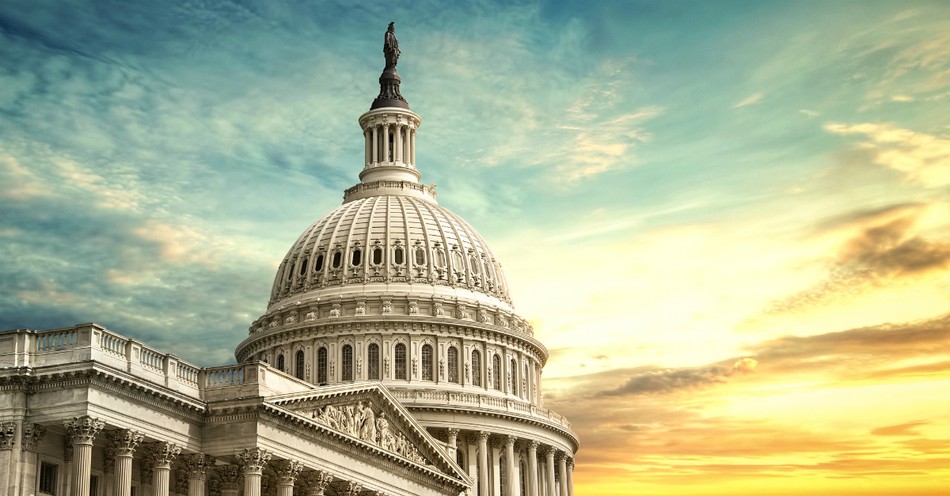A recent Gallup poll suggests that people in the United States aren’t satisfied with capitalism. As Christians think about this study and capitalism more generally, we need to do so with a theological disposition—our sense of how the world works.
Where Does the Data Say We Stand as a Country?
A recent Gallup poll reports a decline in the percentage of Americans who favor capitalism, free enterprise, and socialism. While Gallup didn’t define the terms for respondents, it seems appropriate to offer a description of what I’m thinking about these terms before reviewing the data. The terms may be understood as follows:
1. Capitalism- a system of private ownership and markets oriented toward profit.
2. Free enterprise- relatively low barriers to starting and operating businesses
3. Socialism- a system of expanded public ownership or control of key sectors with various processes and policies for distributing goods.
These descriptions are basically what I think most respondents would understand these terms to mean, though I’m obviously making some assumptions.
I would also note that “favorability” isn’t necessarily an endorsement of specific policies. Attitudes and affinities are malleable. They also often exist in a hierarchy. For instance, I may be one of the few people on the planet who doesn’t like a certain fast food chain specializing in chicken sandwiches, but that doesn’t mean I don’t take my kids there when they ask. Favorability isn’t determinative of anything other than a general feeling about a given position.
In any case, the Gallup poll shows a decline in favorable perceptions of capitalism from 60% in 2021 to 54% in 2025. That decline was traced across political lines, with Republican perceptions of capitalism increasing since 2021 from 72% to 74% while perceptions of capitalism among Independents and Democrats declined rather sharply (from 59% to 51% and 50% to 42%).
Though the political differences were highlighted in Gallup’s summary report, some notable differences were also based on gender, race, age, education, and income. Note the following:
Favorable Views of Free Enterprise
-Race: 84% of whites versus 76% of non-whites
-Income: 87% of those with a household income of $100,000 or more, versus 71% of those with a household income of $50,000
-Education: 85% of college grads versus 76% of those who have a high school diploma or less
Favorable Views of Capitalism
-Race: 58% of whites versus 45% of non-whites
-Income: 65% of those making $100,000 or more versus 46% of those making less than $50,000
-Gender: 63% of males versus 45% of females
-Age: 62% of those 55 or older versus 43% of those age 18-3
Favorable Views of Socialism
-Race: 47% of non-whites versus 35% of whites
-Gender: 46% female and 32% male
-Age: 49% of those aged 18-34 versus 30% of those 55 or older
-Education: 47% of College grads versus 38% of those with a high school diploma or less

Rethinking Economic Trends Through a Christian Lens
It is certainly worth wondering what this data might mean. Shifting trends in public opinion can have significant consequences. Perhaps more importantly, they can point to the need for reform, recognizing that many people don’t see themselves as benefiting from the current economic system—or at least not benefiting as much as others. We also need to ask why this question was deemed important. While Gallup doesn’t offer any explicit rationale for the question, we can make some educated guesses.
First, capitalism has long reigned over the economic system. Since its inception, private property, free enterprise, and profit motives have been assumed to be “goods” within America. Mapping perceptions about how that system is working would seem appropriate. As noted above, the varying views of various groups (e.g., males versus females) may prompt some targeted conversations about why such a disparity exists and what changes might need to be made.
Second, political discourse has also become more pervasive in today’s world. Seemingly, any issue can be baptized into the political realm. Though the bulk of my work on politics has focused on Christian nationalism—the merging of the church and the state, subjecting the church to the state—it is a symptom of a bigger problem: the political has taken up too big a share of our thinking and become a source of meaning when it is unworthy of being so. Does that mean that politics is trivial? Not at all. It means that discipleship is to lie at the root of the Christian perspective of meaning. We recognize that Christ’s kingdom is eternal and all others provisional.
Even so, understanding the differences between Republican and Democratic perceptions of capitalism and socialism can be helpful. It does not, however, make one good and the other bad. Whatever political affinities a given Christian may hold, the body of Christ must realize that economic systems cannot usher in some sort of utopia. We are right to think well about how a given political or economic arrangement might impact the way we love our neighbors, but neither absolves us from that responsibility. These economic systems have no ultimate claim on our lives.
Finally, financial security is no trivial matter. When I consider the Gallup data, I find myself thinking about the disparities evident within our society. I haven’t done sufficient research to understand the history of capitalism in the United States, but it is somewhat easy to spot the inconsistencies within the system. Bank bailouts, .com bubbles, Enron, Madoff’s Ponzi scheme, occurred within a capitalist economic system right alongside decreases in poverty, massive philanthropic work, and impressive innovations. The negative activities within capitalism demonstrate that the system can be distorted, whereas the positive ones showcase its promise.
Filtering Economics through Scripture
When we consider what it means to be wise economically, we often think inside our current systems. How should I invest for retirement? What business should I start? Am I spending the money I earn on the right things? While none of these questions is trivial—our economic position has consequences—there is a bigger picture that needs to inform our thinking about economic issues.
When we consider economic questions, we need to do so through a theological matrix. For instance, consider the following passages:
“When you reap the harvest of your land, you shall not reap your field right up to its edge, nor shall you gather the gleanings of after your harvest. And you shall not strip your vineyard bare, neither shall you gather the fallen grapes of your vineyard. You shall leave them for the poor and for the sojourner: I am the Lord your God.” Lev 19:9; cf. 23:22; Deut 24:19-22
“For six years you shall sow your field, and for six years you shall prune your vineyard and gather in its fruits, but in the seventh year there shall be a Sabbath of solemn rest for the land, a Sabbath to the Lord. You shall not sow your field or prune your vineyard. You shall not reap what grows of itself in your harvest, or gather the grapes of your undressed vine. It shall be a year of solemn rest for the land.” - Lev 25:3-5
“Why have we fasted, and you see it not? Why have we humbled ourselves, and you take no knowledge of it? Behold, in the day of your fast, you seek your own pleasure, and oppress all your workers. Behold, you fast only to quarrel and to fight and to hit with a wicked fist. Fasting like yours this day will not make your voice to be heard on high.” - Isa 58:3-4
Each of these verses next examines economic practices within theology. The legislation in Leviticus 19 is broadly related to the love of God and neighbor, with the reference to God’s Lordship effectively serving as the foundation of the command. Concern for the poor and sojourner is to be privileged over maximizing crop yields.
Leviticus 25:3-5 isn’t related to people, but to the land. The rationale for the command is tied up with giving the land its rest. While Sabbath practice was also intended to keep Israel from acting like a new Egypt by forcing workers into ceaseless labor (Deut 5:12-15), the land was also a theological concern.
In Isaiah, some fast for their own pleasure. Their fasting has become a manipulation—a way for them to get what they want. As such, it is listed alongside oppressing workers, violence, and similar activities. The selfish, transactional quality of such fasting won’t impact God.
None of these verses speaks solely to an economic system, even if they speak to activities that have economic implications. Instead, they speak to a theological system—an underlying dynamic underscoring obedience as our best strategy.
Faithful Stewardship in an Unsteady Economy
Public confidence in our economic systems is likely to rise and fall. Thankfully, Christian perspectives are not governed by those tides. Our question isn’t “which system will save us?” but “how do we faithfully follow Christ within a given system”? We might even ask whether we are sufficiently prepared to live outside our current system.
We should analyze capitalism. As Christians in a capitalist society, we need to consider our economic practices with wisdom. Wisdom is rooted in the fear of the Lord (Ps 111:10; Prov 9:10). Because the fear of the Lord is the beginning of wisdom, we shouldn’t detach wisdom from the fear of the Lord when thinking about our economic life. Instead, we must reason theologically, recognizing that the economic systems of which we are a part may well require us to reimagine our economic practices so that only God gets the glory.
Photo Credit: ©GettyImages/Muni Yogeshwaran



.jpg)

